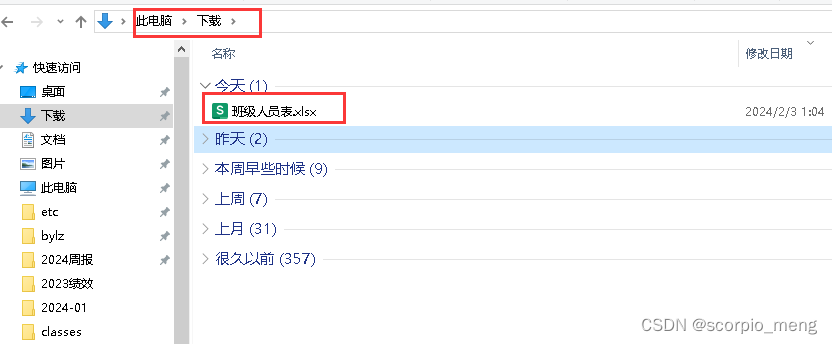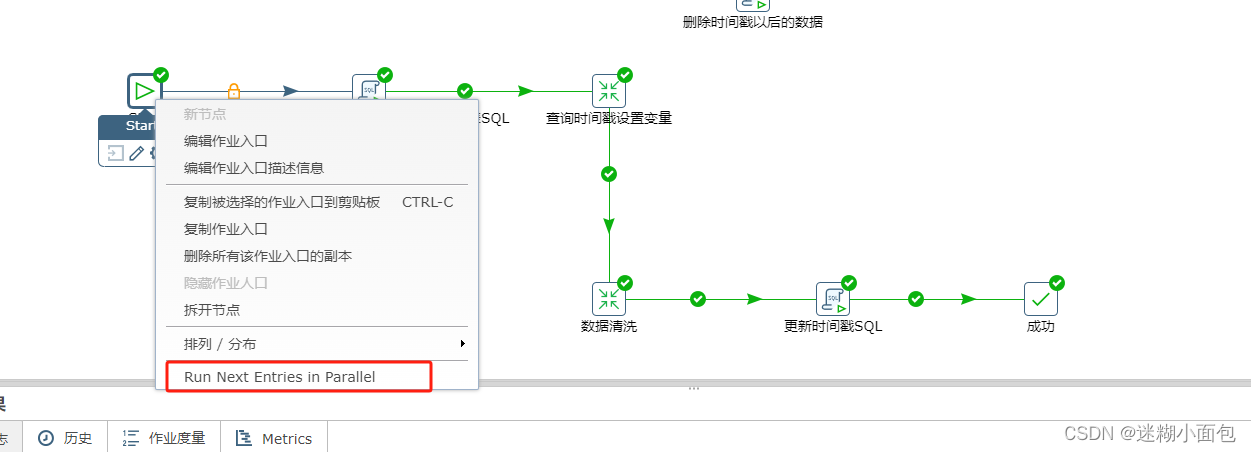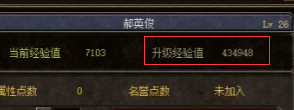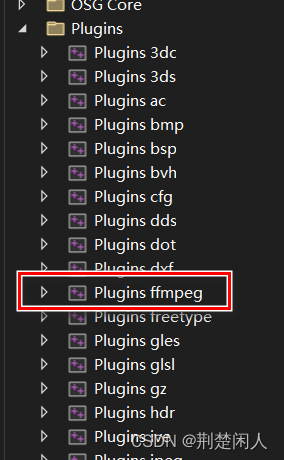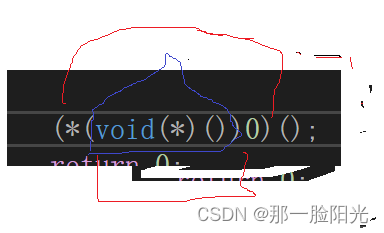1、镜像启动
通过下述命令拉取并启动FunASR软件包的docker镜像:
sudo docker pull \registry.cn-hangzhou.aliyuncs.com/funasr_repo/funasr:funasr-runtime-sdk-online-cpu-0.1.7 mkdir -p ./funasr-runtime-resources/models sudo docker run -p 10096:10095 -it --privileged=true \-v $PWD/funasr-runtime-resources/models:/workspace/models \registry.cn-hangzhou.aliyuncs.com/funasr_repo/funasr:funasr-runtime-sdk-online-cpu-0.1.7
服务端启动
docker启动之后,启动 funasr-wss-server-2pass服务程序:
cd FunASR/runtime nohup bash run_server_2pass.sh \--download-model-dir /workspace/models \--vad-dir damo/speech_fsmn_vad_zh-cn-16k-common-onnx \--model-dir damo/speech_paraformer-large-vad-punc_asr_nat-zh-cn-16k-common-vocab8404-onnx \--online-model-dir damo/speech_paraformer-large_asr_nat-zh-cn-16k-common-vocab8404-online-onnx \--punc-dir damo/punc_ct-transformer_zh-cn-common-vad_realtime-vocab272727-onnx \--lm-dir damo/speech_ngram_lm_zh-cn-ai-wesp-fst \--itn-dir thuduj12/fst_itn_zh --certfile 0 \--hotword /workspace/models/hotwords.txt > log.txt 2>&1 &# 如果您想关闭ssl,增加参数:--certfile 0 这里不需要ssl 需要加参数 # 如果您想使用时间戳或者nn热词模型进行部署,请设置--model-dir为对应模型: # damo/speech_paraformer-large-vad-punc_asr_nat-zh-cn-16k-common-vocab8404-onnx(时间戳) # damo/speech_paraformer-large-contextual_asr_nat-zh-cn-16k-common-vocab8404-onnx(nn热词) # 如果您想在服务端加载热词,请在宿主机文件./funasr-runtime-resources/models/hotwords.txt配置热词(docker映射地址为/workspace/models/hotwords.txt): # 每行一个热词,格式(热词 权重):阿里巴巴 20(注:热词理论上无限制,但为了兼顾性能和效果,建议热词长度不超过10,个数不超过1k,权重1~100)
运行命令之后就会下载社区的模型 启动成功之后会有端口显示

接下来就可以做语音翻译了
2.获取freeswitch音频发送到Funasr 可以参考之前获取的
freeswitch智能外呼系统搭建流程_freeswitch 外联模式的流程-CSDN博客
3.java 用ws 连接就行了 官方的样例
//
// Copyright FunASR (https://github.com/alibaba-damo-academy/FunASR). All Rights
// Reserved. MIT License (https://opensource.org/licenses/MIT)
//
/*
* // 2022-2023 by zhaomingwork@qq.com
*/
// java FunasrWsClient
// usage: FunasrWsClient [-h] [--port PORT] [--host HOST] [--audio_in AUDIO_IN] [--num_threads NUM_THREADS]
// [--chunk_size CHUNK_SIZE] [--chunk_interval CHUNK_INTERVAL] [--mode MODE]
package websocket;
import java.io.*;
import java.net.URI;
import java.net.URISyntaxException;
import java.nio.*;
import java.util.Map;
import net.sourceforge.argparse4j.ArgumentParsers;
import net.sourceforge.argparse4j.inf.ArgumentParser;
import net.sourceforge.argparse4j.inf.ArgumentParserException;
import net.sourceforge.argparse4j.inf.Namespace;
import org.java_websocket.client.WebSocketClient;
import org.java_websocket.drafts.Draft;
import org.java_websocket.handshake.ServerHandshake;
import org.json.simple.JSONArray;
import org.json.simple.JSONObject;
import org.json.simple.parser.JSONParser;
import org.slf4j.Logger;
import org.slf4j.LoggerFactory;
import java.util.regex.Matcher;
import java.util.regex.Pattern;
/** This example demonstrates how to connect to websocket server. */
public class FunasrWsClient extends WebSocketClient {
public class RecWavThread extends Thread {
private FunasrWsClient funasrClient;
public RecWavThread(FunasrWsClient funasrClient) {
this.funasrClient = funasrClient;
}
public void run() {
this.funasrClient.recWav();
}
}
private static final Logger logger = LoggerFactory.getLogger(FunasrWsClient.class);
public FunasrWsClient(URI serverUri, Draft draft) {
super(serverUri, draft);
}
public FunasrWsClient(URI serverURI) {
super(serverURI);
}
public FunasrWsClient(URI serverUri, Map<String, String> httpHeaders) {
super(serverUri, httpHeaders);
}
public void getSslContext(String keyfile, String certfile) {
// TODO
return;
}
// send json at first time
public void sendJson(
String mode, String strChunkSize, int chunkInterval, String wavName, boolean isSpeaking,String suffix) {
try {
JSONObject obj = new JSONObject();
obj.put("mode", mode);
JSONArray array = new JSONArray();
String[] chunkList = strChunkSize.split(",");
for (int i = 0; i < chunkList.length; i++) {
array.add(Integer.valueOf(chunkList[i].trim()));
}
obj.put("chunk_size", array);
obj.put("chunk_interval", new Integer(chunkInterval));
obj.put("wav_name", wavName);
if(FunasrWsClient.hotwords.trim().length()>0)
{
String regex = "\\d+";
JSONObject jsonitems = new JSONObject();
String[] items=FunasrWsClient.hotwords.trim().split(" ");
Pattern pattern = Pattern.compile(regex);
String tmpWords="";
for(int i=0;i<items.length;i++)
{
Matcher matcher = pattern.matcher(items[i]);
if (matcher.matches()) {
jsonitems.put(tmpWords.trim(), items[i].trim());
tmpWords="";
continue;
}
tmpWords=tmpWords+items[i]+" ";
}
obj.put("hotwords", jsonitems.toString());
}
if(suffix.equals("wav")){
suffix="pcm";
}
obj.put("wav_format", suffix);
if (isSpeaking) {
obj.put("is_speaking", new Boolean(true));
} else {
obj.put("is_speaking", new Boolean(false));
}
logger.info("sendJson: " + obj);
// return;
send(obj.toString());
return;
} catch (Exception e) {
e.printStackTrace();
}
}
// send json at end of wav
public void sendEof() {
try {
JSONObject obj = new JSONObject();
obj.put("is_speaking", new Boolean(false));
logger.info("sendEof: " + obj);
// return;
send(obj.toString());
iseof = true;
return;
} catch (Exception e) {
e.printStackTrace();
}
}
// function for rec wav file
public void recWav() {
String fileName=FunasrWsClient.wavPath;
String suffix=fileName.split("\\.")[fileName.split("\\.").length-1];
sendJson(mode, strChunkSize, chunkInterval, wavName, true,suffix);
File file = new File(FunasrWsClient.wavPath);
int chunkSize = sendChunkSize;
byte[] bytes = new byte[chunkSize];
int readSize = 0;
try (FileInputStream fis = new FileInputStream(file)) {
if (FunasrWsClient.wavPath.endsWith(".wav")) {
fis.read(bytes, 0, 44); //skip first 44 wav header
}
readSize = fis.read(bytes, 0, chunkSize);
while (readSize > 0) {
// send when it is chunk size
if (readSize == chunkSize) {
send(bytes); // send buf to server
} else {
// send when at last or not is chunk size
byte[] tmpBytes = new byte[readSize];
for (int i = 0; i < readSize; i++) {
tmpBytes[i] = bytes[i];
}
send(tmpBytes);
}
// if not in offline mode, we simulate online stream by sleep
if (!mode.equals("offline")) {
Thread.sleep(Integer.valueOf(chunkSize / 32));
}
readSize = fis.read(bytes, 0, chunkSize);
}
if (!mode.equals("offline")) {
// if not offline, we send eof and wait for 3 seconds to close
Thread.sleep(2000);
sendEof();
Thread.sleep(3000);
close();
} else {
// if offline, just send eof
sendEof();
}
} catch (Exception e) {
e.printStackTrace();
}
}
@Override
public void onOpen(ServerHandshake handshakedata) {
RecWavThread thread = new RecWavThread(this);
thread.start();
}
@Override
public void onMessage(String message) {
JSONObject jsonObject = new JSONObject();
JSONParser jsonParser = new JSONParser();
logger.info("received: " + message);
try {
jsonObject = (JSONObject) jsonParser.parse(message);
logger.info("text: " + jsonObject.get("text"));
if(jsonObject.containsKey("timestamp"))
{
logger.info("timestamp: " + jsonObject.get("timestamp"));
}
} catch (org.json.simple.parser.ParseException e) {
e.printStackTrace();
}
if (iseof && mode.equals("offline") && !jsonObject.containsKey("is_final")) {
close();
}
if (iseof && mode.equals("offline") && jsonObject.containsKey("is_final") && jsonObject.get("is_final").equals("false")) {
close();
}
}
@Override
public void onClose(int code, String reason, boolean remote) {
logger.info(
"Connection closed by "
+ (remote ? "remote peer" : "us")
+ " Code: "
+ code
+ " Reason: "
+ reason);
}
@Override
public void onError(Exception ex) {
logger.info("ex: " + ex);
ex.printStackTrace();
// if the error is fatal then onClose will be called additionally
}
private boolean iseof = false;
public static String wavPath;
static String mode = "online";
static String strChunkSize = "5,10,5";
static int chunkInterval = 10;
static int sendChunkSize = 1920;
static String hotwords="";
static String fsthotwords="";
String wavName = "javatest";
public static void main(String[] args) throws URISyntaxException {
ArgumentParser parser = ArgumentParsers.newArgumentParser("ws client").defaultHelp(true);
parser
.addArgument("--port")
.help("Port on which to listen.")
.setDefault("8889")
.type(String.class)
.required(false);
parser
.addArgument("--host")
.help("the IP address of server.")
.setDefault("127.0.0.1")
.type(String.class)
.required(false);
parser
.addArgument("--audio_in")
.help("wav path for decoding.")
.setDefault("asr_example.wav")
.type(String.class)
.required(false);
parser
.addArgument("--num_threads")
.help("num of threads for test.")
.setDefault(1)
.type(Integer.class)
.required(false);
parser
.addArgument("--chunk_size")
.help("chunk size for asr.")
.setDefault("5, 10, 5")
.type(String.class)
.required(false);
parser
.addArgument("--chunk_interval")
.help("chunk for asr.")
.setDefault(10)
.type(Integer.class)
.required(false);
parser
.addArgument("--mode")
.help("mode for asr.")
.setDefault("offline")
.type(String.class)
.required(false);
parser
.addArgument("--hotwords")
.help("hotwords, splited by space, hello 30 nihao 40")
.setDefault("")
.type(String.class)
.required(false);
String srvIp = "";
String srvPort = "";
String wavPath = "";
int numThreads = 1;
String chunk_size = "";
int chunk_interval = 10;
String strmode = "offline";
String hot="";
try {
Namespace ns = parser.parseArgs(args);
srvIp = ns.get("host");
srvPort = ns.get("port");
wavPath = ns.get("audio_in");
numThreads = ns.get("num_threads");
chunk_size = ns.get("chunk_size");
chunk_interval = ns.get("chunk_interval");
strmode = ns.get("mode");
hot=ns.get("hotwords");
System.out.println(srvPort);
} catch (ArgumentParserException ex) {
ex.getParser().handleError(ex);
return;
}
FunasrWsClient.strChunkSize = chunk_size;
FunasrWsClient.chunkInterval = chunk_interval;
FunasrWsClient.wavPath = wavPath;
FunasrWsClient.mode = strmode;
FunasrWsClient.hotwords=hot;
System.out.println(
"serIp="
+ srvIp
+ ",srvPort="
+ srvPort
+ ",wavPath="
+ wavPath
+ ",strChunkSize"
+ strChunkSize);
class ClientThread implements Runnable {
String srvIp;
String srvPort;
ClientThread(String srvIp, String srvPort, String wavPath) {
this.srvIp = srvIp;
this.srvPort = srvPort;
}
public void run() {
try {
int RATE = 16000;
String[] chunkList = strChunkSize.split(",");
int int_chunk_size = 60 * Integer.valueOf(chunkList[1].trim()) / chunkInterval;
int CHUNK = Integer.valueOf(RATE / 1000 * int_chunk_size);
int stride =
Integer.valueOf(
60 * Integer.valueOf(chunkList[1].trim()) / chunkInterval / 1000 * 16000 * 2);
System.out.println("chunk_size:" + String.valueOf(int_chunk_size));
System.out.println("CHUNK:" + CHUNK);
System.out.println("stride:" + String.valueOf(stride));
FunasrWsClient.sendChunkSize = CHUNK * 2;
String wsAddress = "ws://" + srvIp + ":" + srvPort;
FunasrWsClient c = new FunasrWsClient(new URI(wsAddress));
c.connect();
System.out.println("wsAddress:" + wsAddress);
} catch (Exception e) {
e.printStackTrace();
System.out.println("e:" + e);
}
}
}
for (int i = 0; i < numThreads; i++) {
System.out.println("Thread1 is running...");
Thread t = new Thread(new ClientThread(srvIp, srvPort, wavPath));
t.start();
}
}
}
运行之后java和Funasr控制台 就能识别了

服务器性能配置官方参考。
用户可以根据自己的业务需求,选择合适的服务器配置,推荐配置为:
- 配置1: (X86,计算型),4核vCPU,内存8G,单机可以支持大约16路的请求
- 配置2: (X86,计算型),16核vCPU,内存32G,单机可以支持大约32路的请求
- 配置3: (X86,计算型),64核vCPU,内存128G,单机可以支持大约100路的请求
详细性能测试报告https://github.com/alibaba-damo-academy/FunASR/blob/main/runtime/docs/benchmark_onnx_cpp.md
官方文档
https://github.com/alibaba-damo-academy/FunASR/blob/main/runtime/docs/SDK_advanced_guide_online_zh.md
如果模块或流程觉得麻烦可以到
https://item.taobao.com/item.htm?id=653611115230


